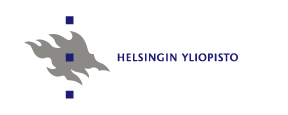Research seminar on interoperability (3cu)
News
Cancelled!
The program will be tailored according to the needs of the participants who either have established their memebership in the CINCO group or still ponder whether that area of research is for them. The seminar is organised on spring terms, regularly, to provide a forum for thesis work related discussions and presentations (MSc theses, Lic theses, PhD theses) and for looking into new emerging topics on the area.
Newcomers should not be shy: the participants are ready to help you to find the interesting sides of a topic still new to you!
Welcome! Lea Kutvonen
Program and schedule (subject to negotiation)
Produced materials in intranet
Themes
At present there is a strong trend for globalisation in e-Business, and thus, increased requirements for IT-system to support collaboration within electronic business networks. This seminar will discuss topics related to approaches for inter-enterprise collaboration, challenges for interoperability technologies, and solution patterns for addressing interoperabilty needs.
Interoperability between two systems (software elements, components, objects, services, agents) means effective capability to communicate information, progression of joint processing of information, suggestions and countersuggestions, and commitments. Different levels can be seen:
- technical interoperability meaning the facilities for exchanging messages,
- semantic interoperability meaning the facitities for ensuring that the nature of information elements and their meaning has not changed during message exchanges, and
- pragmatic interoperability meaning that there are facilities for ensuring joint understanding on the information exchange process and control of that process, and facilities for aunotomosly making decisions on taking part into the exchange process.
Interoperability can be achieved by a number of different architectural approaches. Some of them are based on joint modeling and design solutions affecting each interoperating systems; others trust on joint facilies in the operational time environment supporting the software elements.
Potential themes to be covered:
- interoperability architectures for B2Bi, like multiagent systems; eContracting solutions, virtual enterprises;
- interoperability in information exchange, with solutions based on XML and ontologies;
- contract negotiation protocols;
- monitoring solutions for catching interoperability breaches;
- policy-governed systems;
- model interoperability;
- messaging middleware;
- matchmaking and service selection with semantic information on business services;
- interoperability of trust management and other non-functional aspects;
- adaptation to technical differencies;
- eServices and enterprise buses;
- latest developments on Web Servcies;
- ...
Prerequisities
Seminars are part of master's studies, so students should not attend the seminar before they have finished their bachelor's studies. The seminar is primarily targeted for students on the area of Distributed systems, thus related studies are recommended, such as Distributed systems, Data communication, Operating systems, Middleware.
Particularly important prerequisite for the seminar is Scientific Writing (Tieteellisen kirjoittamisen kurssi).
Practicalities
In the seminar, each participant is expected to perform the following tasks.
- Abstract - or work plan.
One or two pages (extended abstract) with list of main references
to show other participants what to expect as the goal, focus, and main
contribution to the discussion.
Abstracts will be published on week 2.
- Paper, about 15-20 pages.
The texts will be distributed to the participants one week before the presentation.
Format: pdf.
- Presentation
The presentation can take about 70 minutes, the rest of the session is
reserved for discussion.
- Active participation to discussion
Prepare yourself for the discussion by reading the paper, considering
new aspects to contribute into the discussion (for example, use views
arising from your own
topic), reading related publications!
- Providing feedback Besides contributing to the contents of discussion, you can contribute by providing insight on quality of presentations and papers. In the end of each session, each participant writes down (anonymously is ok) some strong features of the paper, presentation, etc, as well as a few points where improvements could be suggested.
Kts myös laitoksen seminaariohjetta.
Material
TBALea.Kutvonen@cs.Helsinki.FI

